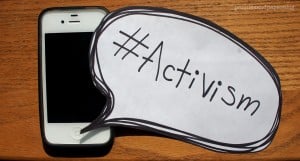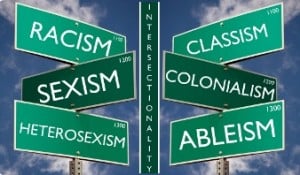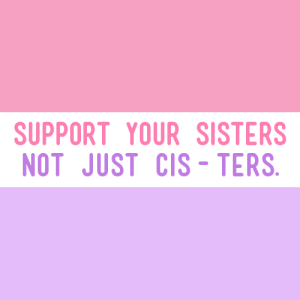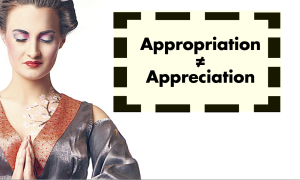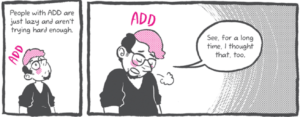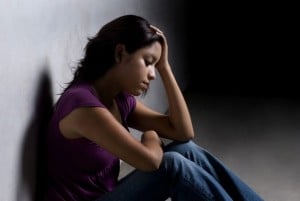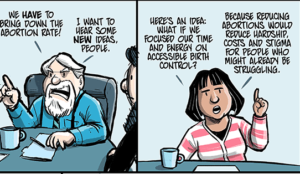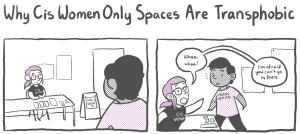Language is a huge part of the movement for social justice.
Recognizing why some words are harmful, what others words mean, and why our language matters are all important steps toward building a more just, aware, and empathetic world.
That’s why today, I come bearing one simple request.
I need broke folks to stop calling themselves “poor.”
There’s a big difference between sharing a Netflix account and struggling to make ends meet. There’s a big difference between not being able to order a pizza or go out with your friends and not being able to pay the bills. And there’s a huge difference between being destitute and being strapped for cash.
When folks who are broke call themselves “poor,” they make light of those differences. And that’s no small matter. Because being poor is serious business, and it’s a world away from what we’re talking about when we tell people we’re “broke.”
A poor person is someone who lives in poverty. These are people who are working multiple jobs to get by, struggling to put food on the table for their families, and facing financial hardship all day long, every single day.
We’ve talked a lot about what poverty looks like here at Everyday Feminism, and it may not fit into one of those neat narratives – but one thing is certain: Being poor is not the same as being “broke.”
When we talk about being broke, we often talk about being unable to afford specific things, or not having enough money to do fun stuff once we’re done doing the important stuff – like paying our bills or our rent, putting gas in the car, or snagging school supplies.
We’re too broke to go out, because we’re waiting on a paycheck. We’re too broke to go on a trip, because we’re not getting paid enough to pack up and go. We’re too broke to order pizza, we’re too broke to hail a cab, we’re too broke to buy a latte.
A poor person can be a broke person. But often, people who call themselves “broke” aren’t poor. That doesn’t mean being broke isn’t hard, because it is. That struggle seriously is real. Being too broke to get drinks with your co-workers sucks. And being too broke to go to the concert you were excited to check out is the worst.
But the idea of being “broke” is much different than the image of living in poverty – and with good reason.
Wanna know whether you’re poor or just broke? Just let me ask you three questions.
1. Is Your Hardship Temporary? Is There a Way Out?
For folks in the midst of poverty, there often isn’t a “way out” of their struggle. For the most part, their hardship is part of their way of life.
I noticed, growing up, that people were very quick to throw ideas at poverty that weren’t real, or possible, in an effort to minimize how hard being poor really was.
It’s comforting for us to believe that poverty is a choice, or a consequence for a string of bad choices. But in reality, poverty is more common than ever – and the gulf between financial security and relative comfort is wider.
It isn’t always possible, for example, for poor people to “put money away,” whether it’s in a savings account or into investments. Because poor people sometimes live paycheck-to-paycheck, without much money left in-between.
It’s also not always feasible for poor people to cut costs, or to give up anything beyond what they already have sacrificed. It’s not possible for someone to sell their car when it’s all they have to get to work, or scrap childcare when they’re raising young children. Sometimes, the biggest costs are the most important.
And it’s downright insensitive to ask a poor person to “work harder” – especially since poverty alone is grueling emotional labor and often, the poor person in question is juggling more than a few jobs to scrape by.
Being poor shapes someone’s entire life, and changing that takes a lot more than cutting back or making small changes. But for broke people, financial hardship is temporary – and quick solutions make it possible to overcome that hardship.
When I had just graduated college and my friends and I were all strapped for cash, we started cutting back. We spent less when we went out, or skipped on going out at all. I cut back stringently on how much my groceries were costing me, and learned to make ten bucks last a week or more in the kitchen. We moved into neighborhoods where the rent was cheaper. We took on different jobs. And I started getting my hair cut in the living room instead of at the salon.
And for most of us, that situation was temporary.
We landed stable jobs with good paychecks and were able to move into better apartments or start going to restaurants and bars again. I even increased my food budget and started buying fresh. We were suddenly able to take trips, or buy cars, or otherwise pursue our dreams. What a difference a job made!
None of these things made us mega-rich, or imbued us with sacks of cash to throw around. But they did enable us to stretch our assets and get by. And that’s a key difference between being “broke” and actually “poor.”
Getting away from temporary hardship – and knowing there’s a light at the end of the tunnel – is infinitely easier, and more possible, for a broke person.
Someone who’s down on their luck but has the peace of mind to believe they’ll be up on it soon is more equipped to “get out” of financial insecurity because it’s not a lifestyle, it’s a temporary phase of life.
And most of us go through it.
Most of us are too broke in college to buy pizza every once in a while, or get coffee at Starbucks, or join our classmates at karaoke. Most of us graduate into gross apartments, or work three weird jobs to stay afloat while we’re figuring out our careers.
Poverty doesn’t look like that – and getting away from it takes more than a new job or a new budget. And that’s because poverty is part of the class system, and a result of it, while being broke is just a transitional hardship.
2. Is Your Current Situation Indicative of Your Class?
I did “broke” in hyper efficiency mode.
I cut back the most, stretched each dollar the furthest, and made do on the least compared to most other folks I knew. And that was because being broke, for me, felt a little bit familiar – albeit a little more uncomfortable – because I’d been raised by a working-class single mom.
Graduating into self-sufficiency, even with limited resources, didn’t shock me. It was what I’d expected going into college, and what I’d been preparing for. While the necessities of being broke – the hard work, the constant financial vigilance – took some of my peers by surprise, I was a little more prepared going in for what it would look like.
Being broke was indicative of my social class. That struggle for me was just a continuation of my mother’s struggle, one custom-made to fit me.
But it isn’t like that for everyone.
For some broke folks, their financial situation is miles away from their actual class experience.
For some folks, being broke is a pit stop on the way to exorbitant wealth, or a vacation away from their family’s resources. It’s what you do in the period between graduating and inheriting your father’s business, or a temporary quest for freedom that’s occasionally sustained by checks from Mom and Dad.
And that’s a big difference between being “broke” and being “poor.”
Because being poor isn’t about the day-to-day financial insecurity someone experiences when they’re currently strapped for cash. Being poor is about a day-to-day, week-to-week, month-to-month struggle to make ends meet, survive, and thrive – and it doesn’t change, typically, from year to year or life phase to another.
3. Do You Have a Safety Net?
There’s no quick fix when you’re broke and poor. There’s no familiar model for breaking out of financial insecurity. And there’s no safety net.
For poor people, there’s no such thing as a safety net. Any loss of money is a permanent loss, and any times of hardship must be faced with the limited resources people have to access to immediately.
For broke folks who come from class backgrounds that aren’t as overcome with financial insecurity, there exists one very easy way out: a safety net.
When I graduated college, I took a chance and stayed in Washington, DC, where I’d gone to school and was sincerely committed to building a future for myself. That meant taking a huge financial risk, and putting everything on the table. I had no savings, and a very modest job with no benefits or opportunities for mobility.
I wasn’t able to save. I was just hustling – trying my hardest to find my way, to reach solvency, to bail myself out.
There was no safety net. If I failed, that was it.
When the going got tough, I couldn’t always call home and ask for financial help. When things seemed impossible, my mom couldn’t connect me to a high-powered network of folks who were eager to employ me.
And when I finally did land the “dream job” – the one that paid me enough to enable me to save, gave me benefits and stability, and let me use my brain to do the work I wanted to do – I went in on day one with almost no money in the bank and a ripped dress on my back.
A safety net can take many forms.
It could be a backup pile of cash, a network of people who can offer help, or even opportunities kept on the backburner. It can be going to work for your parents, or a family friend, even though that work isn’t your dream. It can mean some money to help you get by while you’re pursuing your goals, or an apartment paid for by someone else while you’re unemployed. It can look like a trust fund that gives you room to innovate or a financial background that allows you to take time off to travel and figure things out.
Those things can be truly invaluable to a broke person who wants to get back on their feet – and they’re things people living in poverty don’t have, even in emergencies.
But the existence of a safety net signifies class privilege.
If the biggest difference between being poor and being broke is a way out, a safety net is how most people open the door.
***
Language matters, and the difference between being poor and being broke is important. That’s because issues of class and poverty and economic injustice are important – and making light of them isn’t okay.
There’s no shame in being poor. There’s no shame in being broke, either. But understanding the distinction and using the right words to talk about those experiences fosters more awareness about that important difference.
Being broke is a struggle. Being poor is a struggle. (Let’s face it: Being human is a struggle.) Just make sure you’re talking about the right fight next time you name yours.
[do_widget id=’text-101′]
Carmen Rios is a Contributing Writer for Everyday Feminism. She splits her time disparately between feminist rabble-rousing, writing, public speaking, and flower-picking. A professional feminist by day and overemotional writer by night, Carmen is currently Communications Coordinator at the Feminist Majority Foundation and the Feminism and Community Editor at Autostraddle. You can follow her on Twitter @carmenriosss and Tumblr to learn more about her feelings.
Search our 3000+ articles!
Read our articles about:
Our online racial justice training
Used by hundreds of universities, non-profits, and businesses.
Click to learn more
Most Read Articles
- « Previous
- 1
- …
- 30
- 31
- 32







